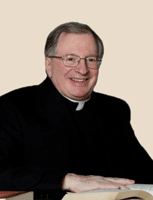It is high summer, and for many, including myself, that means time for leisure reading. Since I am no longer able to hike into the high country, I savor with added pleasure the escape into other times and places afforded by summer reading. Vacation still lies ahead for me, but I have already travelled into the 19th-century West on the Texas and Kansas frontiers.
One of the best of this past spring’s books is S. C. Gwynne’s Empire of the Summer Moon, a history of the Comanche on the Texas frontier. Frequently compared to Bury My Heart at Wounded Knee, Dee Brown’s 1970 story of Sitting Bull and the tragic surrender of the Lakota Sioux, Gwynne’s book lacks the narrative drive of its predecessor, but what it lacks in pacing it makes up as a chronicle of frontier life at its most harrowing. The cast of actors is large, but the principals are members of the Parker clan, a family of Texas settlers, preachers and politicians and their captive and half-breed offspring, Cynthia Ann Parker and her son Quanah Parker, the last war chief of the Comanche.
Until I read Summer Moon, the Comanche had no distinct place in my own imaginative landscape of the West. They were ghostly warriors whose presence in westerns is made known by the fletching on their arrows. I could not place them, as I believe I might identify Apache, Navajo or Sioux. But as it turns out, one of John Ford’s most famous westerns, “The Searchers,” was loosely based on the Parker family’s longtime search for Cynthia Ann.
Until the arrival of horses on the Great Plains, the Comanche were a minor tribe in Wyoming’s Wind River Basin. In time, however, they became the most successful warriors on horseback. Except for a couple of exceptional bands of Texas Rangers who adopted Comanche tactics, neither other native tribes nor the U.S. Cavalry was able to best the Comanche until these antagonists ceased riding into battle only to fight on foot. Later the adoption of repeating rifles enabled them to match the dozen arrows a Comanche warrior could get off in the time it took to re-load a single-shot rifle. But it was the buffalo hunters who, by wiping the bison from the plains, did the most to subdue the Comanche by eliminating the basis of their way of life.
In the end Quanah Parker led only a small band of warriors, but his wiliness and skill so won the admiration of the U.S. Army that, once captured, he was allowed to settle down in peace and became a successful businessman, politician and benefactor to his people. Eventually, though, like the others, developers cheated Parker out of his remaining land and he impoverished himself further by providing for others’ needs.
Last winter I read with great satisfaction Gunman’s Rhapsody, a reworking of the tale of the shoot-out at the OK Corral by the late Boston mystery writer Robert B. Parker, and I thought it would be hard to best it. But Mary Doria Russell’s re-imagining of the Wyatt Earp-Doc Holliday friendship, Doc, is still a better read. It is a superior character study in which character drives plot. Russell’s rendering of Holliday humanizes the legend of the drunkard dentist and gambler. It doesn’t hurt, of course, that one of the characters is a Jesuit, a former Austro-Hungarian prince and cavalryman. Father Alex’s learning and love for music elicit the best in the cultivated southerner’s personality. Their Christmas meeting makes for the emotional climax of the book.
As long as Val Kilmer’s portrayal of Doc in “Tombstone” remains vivid in cinematic memory, so will Russell’s sensitive prose honor the haunted son of the Old South whom we have known, to our loss, merely as a gunman and gambler. In the hands of a filmmaker like Robert Redford, Doc would make a great western, too.









@ Father Drew:
You are giving Father Jim a run for his money on movie commentary - Doc.